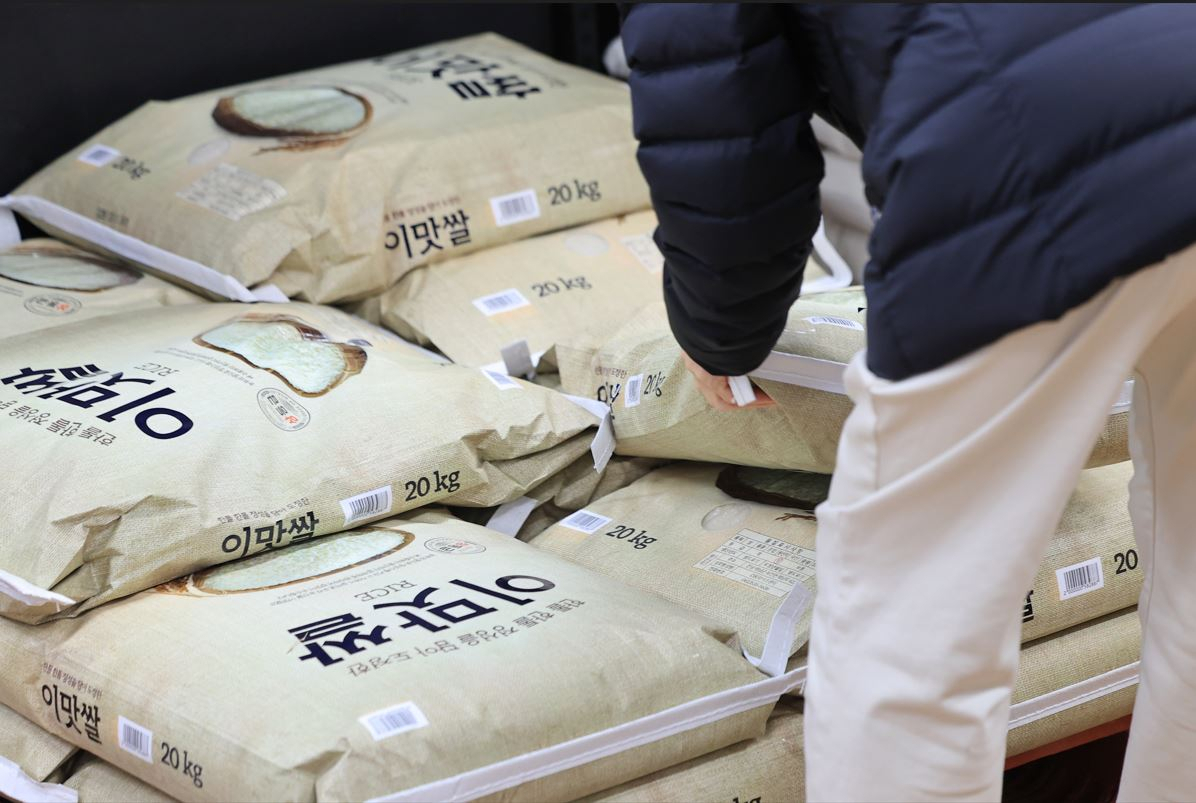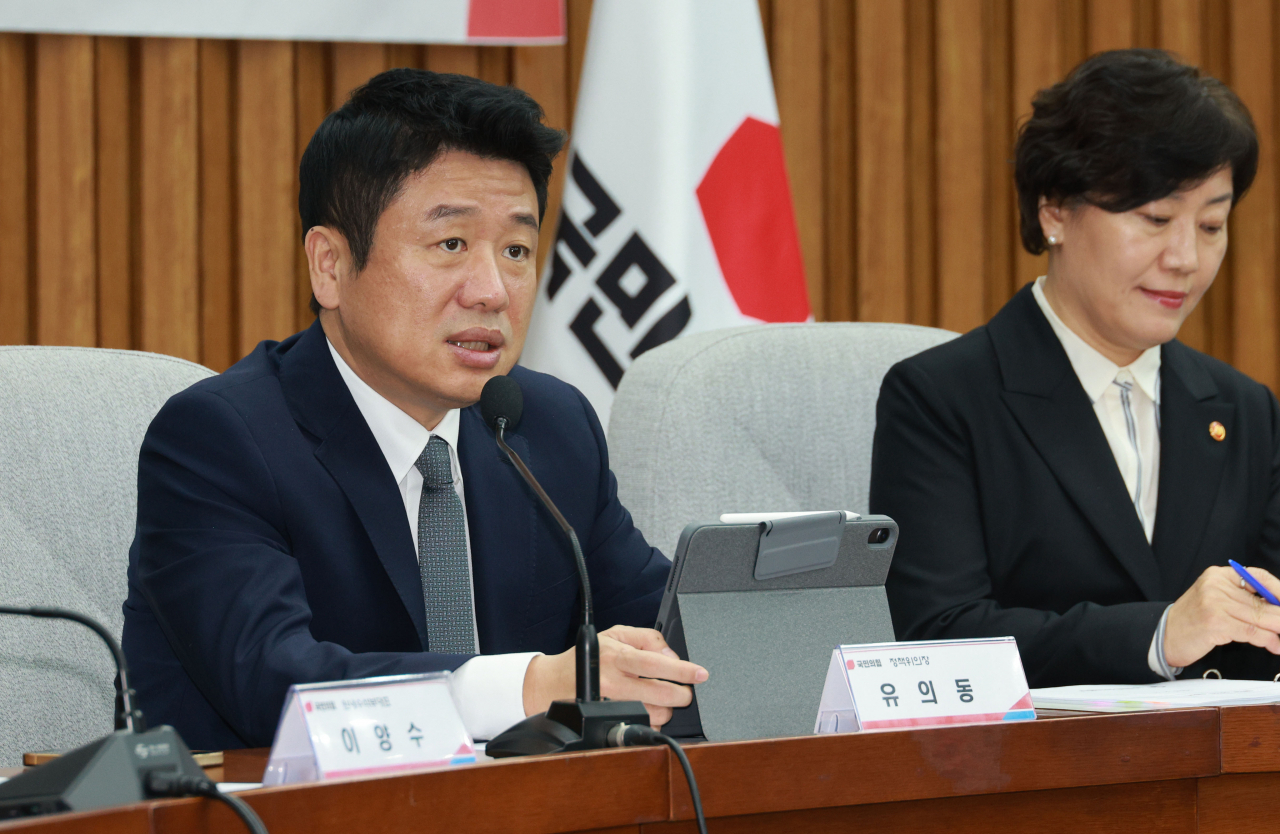 |
This photo shows bags of rice stacked at a hypermarket in Seoul on Friday. (Yonhap) |
The South Korean government and the ruling People Power Party on Friday reached an agreement over the Ministry of Agriculture's plan to buy 50,000 tons of surplus rice to use for the international food aid program and to keep the domestic grain price afloat.
The newly purchased rice will be sent to African and Asian countries as food aid through the World Food Program, Agriculture Minister Song Mi-ryung told reporters at the National Assembly on Friday. She did not disclose further details.
This would be a follow-up of the government's earlier decision in November to buy 50,000 tons of surplus rice for food assistance, contrary to its previous moves to use the government stockpiles for the aid.
The government has been grappling to maintain the retail price of the staple food as agricultural cooperatives in South Korea suffer from an excess of inventory and Koreans consume less grain.
According to Statistics Korea, 80 kilograms of rice retailed for 194,796 won ($147.2) as of Jan. 25, down over 10 percent from 217,552 won in early October. President Yoon Suk Yeol's administration missed its policy target of keeping the price of 80 kilograms of rice above 200,000 won, as the unit price fell to 199,280 won in mid-November.
In the meantime, a South Korean individual consumed 56.4 kilograms of rice throughout the year on average in 2023. The figure shrank to half compared with three decades before. A South Korean's annual rice consumption averaged over 110 kilograms in 1993.
 |
Rep. Yu Eui-dong of the ruling People Power Party (left) and Agriculture Minister Song Mi-ryung attend a meeting to discuss policy directions at the National Assembly on Friday. (Yonhap) |
Against this backdrop, People Power Party Rep. Yu Eui-dong said the government will work to advance technologies to forecast food demand and control the food supply. Yu also suggested that nurturing the rice processing industry domestically could be another solution to addressing the grain oversupply.
Conservative party lawmakers, however, blasted the main opposition Democratic Party for its decision Thursday to reintroduce a revision of the Grain Management Act that requires the government to purchase surplus rice in the private distribution channel.
The same bill was eliminated in April 2023 after Yoon vetoed it about a week prior.
Rep. Lee Dal-gon of the People Power Party said Friday the party will not concede to the main opposition's move to propose "the leftist bill that restrains the function of the market and the government."







![[Today’s K-pop] Blackpink’s Jennie, Lisa invited to Coachella as solo acts](http://res.heraldm.com/phpwas/restmb_idxmake.php?idx=644&simg=/content/image/2024/11/21/20241121050099_0.jpg)